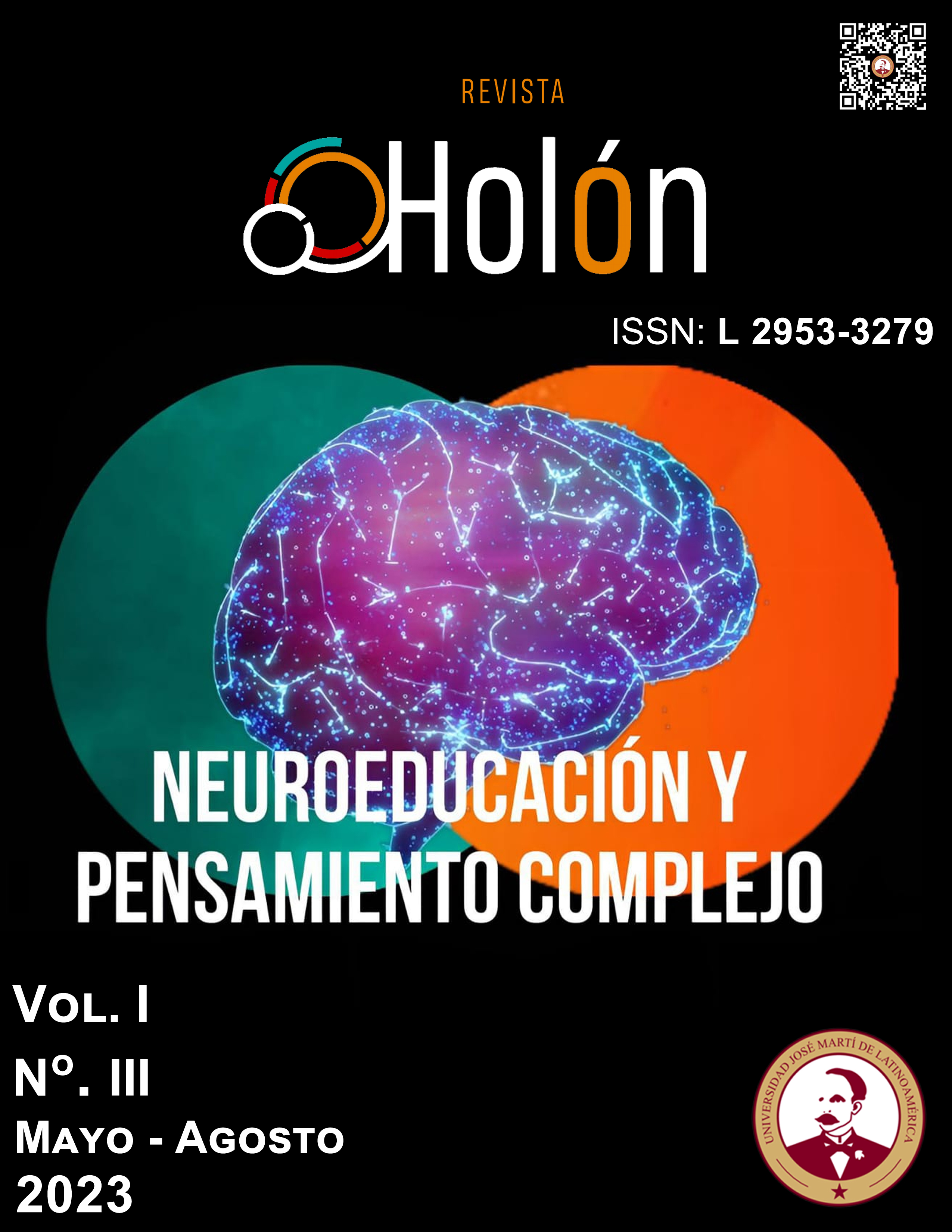

Copyright (c) 2023 Revista Holón

Este trabalho está licenciado sob uma licença Creative Commons Attribution-NonCommercial-ShareAlike 4.0 International License.
Este artigo é baseado em várias abordagens expostas por meio de perguntas desenvolvidas no âmbito do VI Congresso de Neuroeducação, realizado pela Universidade José Martí durante o ano de 2022. Nesse contexto, o discurso e a dinâmica exteriorizada na discussão apoiaram argumentos que visualizam a mobilização de aprendizagem em contextos educativos, como a promoção e desenvolvimento do pensamento crítico e reflexivo nos alunos; o que exige processos que respondam às necessidades da população estudantil, gerando o fortalecimento de aptidões e habilidades próprias de uma educação de qualidade. Da mesma forma, foram destacados aspetos da aprendizagem enquadrados na linha da neuroeducação e do pensamento, aspetos importantes que nos permitem concluir que, atualmente, o desenvolvimento de competências como o pensamento crítico, criativo, cuidadoso, colaborativo e cidadão se tornaram fundamentais aspectos para o sucesso pessoal e profissional. O mundo de hoje está cheio de desafios complexos que exigem uma maneira de pensar mais aguçada e flexível, e essas habilidades são a chave para lidar com esses problemas de maneira eficaz. Portanto, o pensamento crítico implica a capacidade de analisar, avaliar e sintetizar informações de forma objetiva e reflexiva. Essa habilidade é essencial para tomar decisões informadas e resolver problemas complexos. À medida que o mundo se torna cada vez mais complexo e repleto de informações, o pensamento crítico torna-se cada vez mais importante para navegar pela complexidade e chegar a conclusões sólidas.